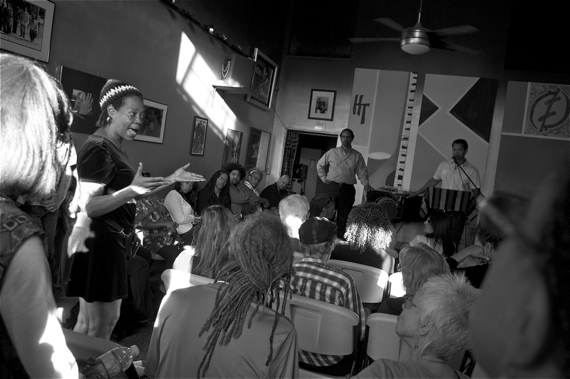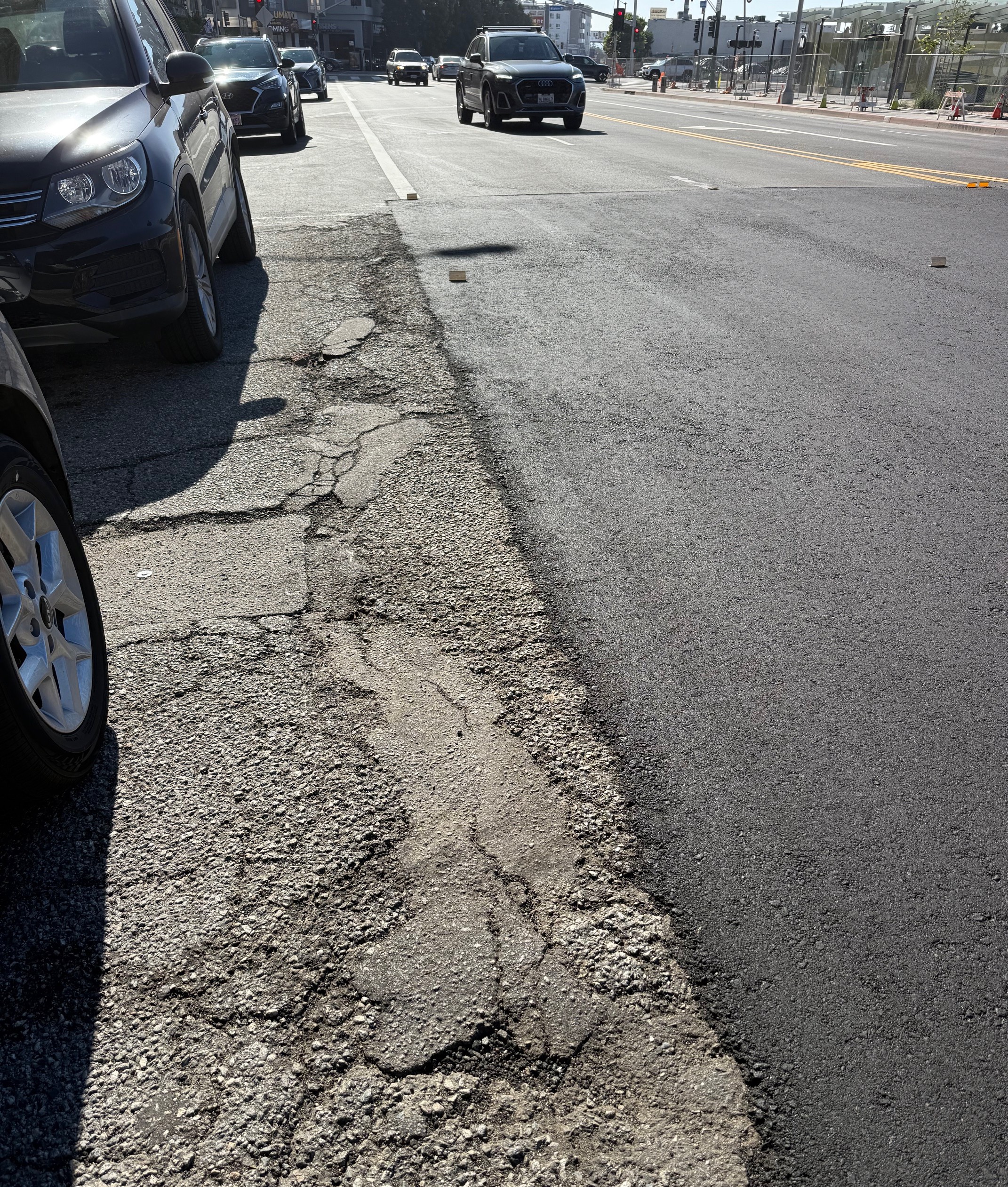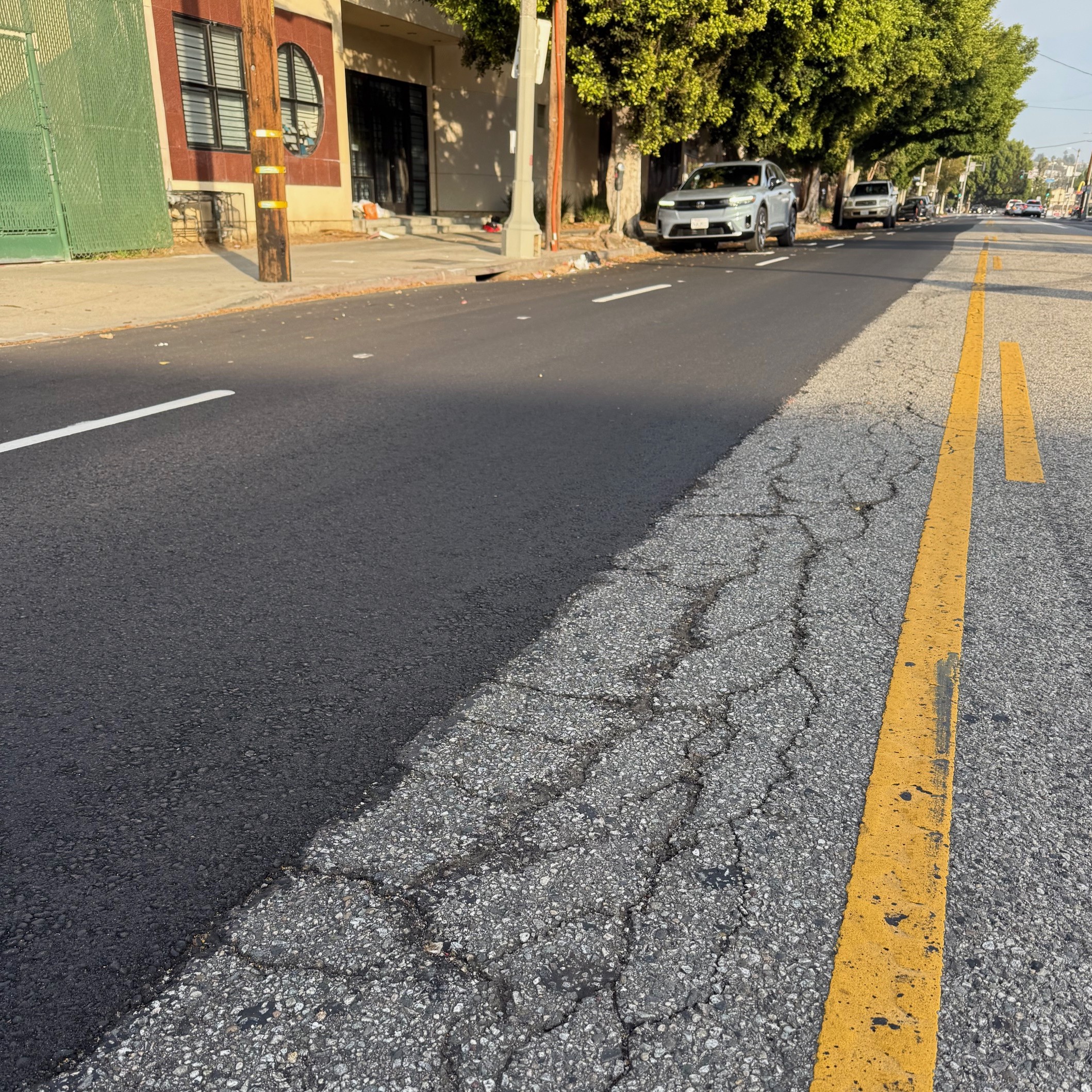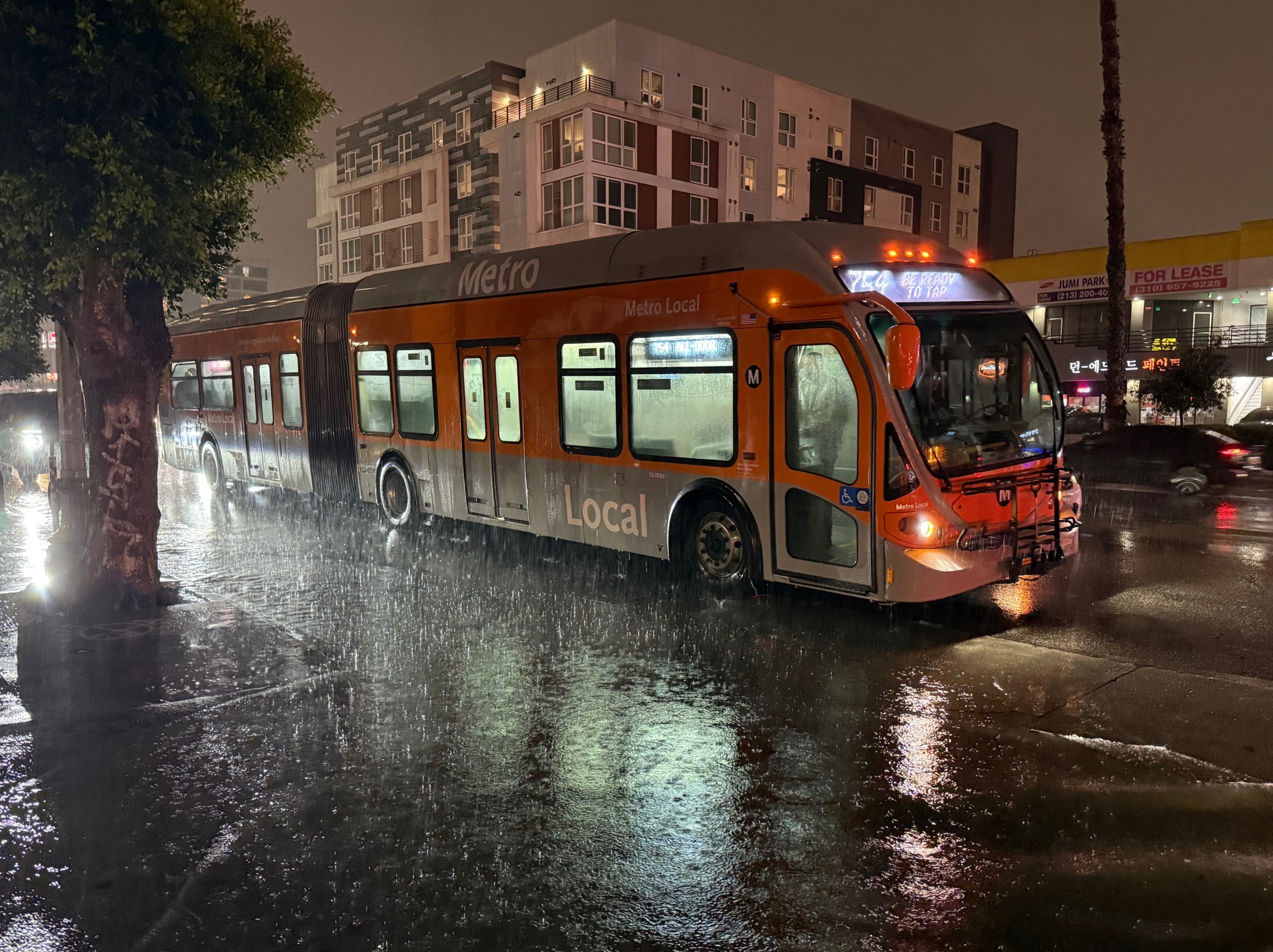
I looked at my watch and groaned inwardly.
It was now 8:20 p.m.
Although my spirit felt educated, nourished, and warmly embraced, my stomach was starting to shout unflattering obscenities and I could no longer ignore the loud complaints of my brain about the pile of work awaiting me at home.
I hugged artist, filmmaker, historian, and KAOS Network founder Ben Caldwell good-bye, bid adieu to another writer, got on my bike, and started the long pedal up Leimert Park Blvd. towards home.
How does this always happen to me here?
I had gotten to The World Stage, a non-profit arts, education, and performance gallery on Degnan Blvd. in Leimert Park, at a little after four in the afternoon for their press conference and somehow ended up staying, chatting with, learning from, and trading stories with young poets, powerful female writers, veteran artists, and elder musicians for the next four hours.
That's Leimert Park in a nutshell.
And, that's what makes it special: there are few places in L.A. that are so welcoming, so rich in history and culture, and so inspiring all at once.
Which is exactly what the supporters of The World Stage had gathered to say earlier that afternoon. For so many aspiring or accomplished poets, writers, artists, and musicians from within the community and around the city, it represents "not a space, but a spirit," and one they desperately want to see preserved.
At the moment, however, those who manage the space are concerned that it could be lost.
Within weeks of the May announcement that there would be a station at Leimert Park, Our Weekly reported that the buildings housing the World Stage and several other businesses along Degnan had been bought. Folks began receiving three-day “pay or quit” notices or hearing that their leases would not be renewed shortly thereafter, but were unable to figure out who the new owners were. While the property that houses The World Stage is managed by Clint Lukens Realty, the owners have yet to respond to requests for a meeting from the Board of Directors, and the realtors have apparently offered little information about who the new owners are.
On a month-to-month lease with unknown owners and understandably worried about what the future would hold, Ade Brown (president of the Board of Directors of The World Stage) and other stakeholders set up a meeting with staff from Herb Wesson's office. There, they spoke with Wesson's chief deputy Deron Williams about the possibility of organizing a sit-down with the new property owners, having the city designate Leimert Park as a cultural landmark, and putting together a "light and signage package" to spruce up storefronts and make them attractive to those curious about the area.
According to board member and jazz singer Dwight Trible, however, efforts to follow up on the discussions with Wesson's office have "hit a roadblock" -- meaning, essentially, that their calls aren't being returned.
Considering that Wesson had been an instrumental player in the redistricting shuffle that moved Leimert Park from the 8th district into his own (the 10th), the sense that he is now stepping away from the plate when his new constituents feel they need him most is leaving people very uneasy. (I have not heard from Wesson's office or the realtors as of publication.)
So, they've turned to the public for help.
At the press conference on Wednesday, artists spoke about what the space meant to them, how The World Stage had changed their lives for the better, and how important it had been in the history of African-American culture, both in L.A. and beyond.
It had been founded in 1989 by jazz legend Billy Higgins and poet, educator, and activist, Kamau Daáood. A force, even in its early days, it really came into its own after the uprising of 1992.
When that happened, says poet Conney Williams (one of the coordinators of the Wednesday night Writers' Workshop), "it became an enclave for the black community to come and heal."
An extension of the tradition of the Watts Writers' Workshop, the 2 1/2 hour-long Anansi Writers' Workshops are run in three parts -- a formal workshop, a featured reader, and an open mic. Other workshops, including jazz jam sessions, piano workshops, drum workshops, the women's drum circle, and vocal workshops are intended to serve as "cauldrons" that allow veterans and elders to hone their own craft while leading aspiring artists by example (see here for schedule).
It's all organized with love for a donation of $5 that goes toward the costs of the space, and no one is turned away for lack of funds.
"I've been here 18 years, and nobody gets paid," said Williams, reminding the crowd that the mission of the space had always come first.
The fact that nobody is getting paid might be part of the problem, unfortunately.
It's hard to maintain a space on love alone and, while it remains intensely vibrant and vital, the donations do not stretch nearly as far as they used to. Finding the right deep-pocketed donors is not all that easy, either. Part of the curse of being a non-profit is needing to have some base foundation of funds and capacity in order to be eligible to receive more substantial funds. Given their struggle in maintaining a steady inflow of sufficient funds, the organizers have decided, for now, at least, to campaign for donations that would provide them both with rent for the next several months and the breathing space to hammer out a longer-term strategic plan.
There is also the problem that, despite being linked by Crenshaw Blvd., Leimert Park and Crenshaw are two very different neighborhoods. They do not necessarily have the same vision for the future or the same needs. And, they are not always in that much communication with each other.
This was most recently evident in Tuesday's segment of Which Way L.A., when Williams found himself participating in an interview on whether the historic neighborhood could survive the arrival of the station with Tunua Thrash from the West Angeles Community Development Corporation. Although the WACDC is located just south of Leimert, Williams realized he had never heard of them. They hadn't really come knocking around Leimert Park, having instead focused on trying to address some of the many needs of the businesses of the Crenshaw corridor, one block over.
The distinct nature, composition, rhythm, and potential contributions of the two communities is something both neighborhoods need the city to be cognizant of going forward, as well; plans or programs created to assist one area may leave the other out in the cold.
In the meanwhile, as one speaker noted Wednesday, "We are who we've been waiting for."
In short, the artists are now hoping to get support from the many people they've inspired over the years and the wider community that thought Leimert Park was an asset worth celebrating with a station.
To that end, they will be holding a rally and fundraiser on October 26th at 1 p.m. in Leimert Park. They invite you to come out, get to know the spirit of the community, and see why it is so vital that it be preserved.
But don't take my word for it. Listen instead to the young writer who pleaded with the community members to support the place that he felt had helped save his life and turn him into the man he was proud to be today.
"I give thanks to all the elders before me for putting me in a headlock," he told the crowd, remembering his more troubled early years.
"People need a place like this."
For more information about The World Stage, please click here.






